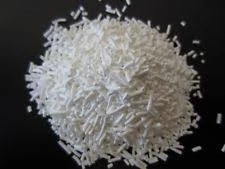
Understanding the Benefits and Applications of Sodium Benzoate as a Food Preservative
Sodium Benzoate Understanding Its Role as a Preservative
Sodium benzoate is a widely used preservative in the food and beverage industry, known for its effectiveness in preventing the growth of bacteria, yeast, and fungi. It is the sodium salt of benzoic acid and is commonly found in various products such as soft drinks, salad dressings, jams, and pickles. The usage of sodium benzoate is permitted by health authorities in many countries, making it a staple ingredient in food preservation.
Sodium Benzoate Understanding Its Role as a Preservative
One of the significant advantages of sodium benzoate is its cost-effectiveness and stability. It is relatively inexpensive compared to other preservatives, making it a popular choice for manufacturers. Furthermore, it has a long shelf life, ensuring that the products remain safe for consumption over extended periods.
sodium benzoate preservative

Despite its benefits, there has been some controversy surrounding the use of sodium benzoate. Studies have indicated that when sodium benzoate is exposed to high levels of heat and light, it can form benzene, a known carcinogen. This concern has led to scrutiny by various health organizations. However, the levels of benzene generated under typical storage and processing conditions are usually considered negligible and well within safety limits set by regulatory bodies such as the FDA.
Sodium benzoate is also recognized for its potential role in enhancing the flavor profile of foods and beverages. It can help maintain the taste of products by preventing spoilage that might alter flavors. Additionally, its synergistic effect with other preservatives, such as potassium sorbate, can enhance overall preservation effectiveness.
Consumers are becoming increasingly aware of food additives, leading to greater demands for transparency in ingredients. As a result, many products now feature labels indicating the presence of sodium benzoate or other preservatives. While some consumers may view such ingredients with skepticism, the scientific consensus supports the safety of sodium benzoate when used appropriately.
In conclusion, sodium benzoate remains a crucial preservative in the food industry, valued for its ability to inhibit microbial growth and prolong shelf life. While concerns about its potential formation of benzene exist, regulatory guidelines ensure that its usage is safe within established limits. As the food industry continues to innovate, sodium benzoate will likely remain a vital component in maintaining food safety and quality, balancing consumer demands for preserved products with the essential need for safety. Understanding these aspects enables consumers to make informed choices about the foods they select, while appreciating the complexities of food preservation.
-
Why Glacial Acetic Acid Food Grade Is Essential in FlavorNewsMay.26,2025
-
Surging Export Growth of Food Additives in ChinaNewsMay.26,2025
-
How Ammonium Nitrate Fertilizer Boosts Crop YieldsNewsMay.26,2025
-
How 1,2,3-Benzotriazole Shields Plastics from UV DegradationNewsMay.26,2025
-
Cyanide in Gold Mining: Protecting People and the PlanetNewsMay.26,2025
-
Aluminum Hydroxide in Modern Sunscreen FormulationsNewsMay.26,2025
-
Understanding Synthetic Rubber OptionsNewsApr.27,2025
Hebei Tenger Chemical Technology Co., Ltd. focuses on the chemical industry and is committed to the export service of chemical raw materials.
-

view more DiethanolisopropanolamineIn the ever-growing field of chemical solutions, diethanolisopropanolamine (DEIPA) stands out as a versatile and important compound. Due to its unique chemical structure and properties, DEIPA is of interest to various industries including construction, personal care, and agriculture. -

view more TriisopropanolamineTriisopropanolamine (TIPA) alkanol amine substance, is a kind of alcohol amine compound with amino and alcohol hydroxyl, and because of its molecules contains both amino and hydroxyl. -

view more Tetramethyl Thiuram DisulfideTetramethyl thiuram disulfide, also known as TMTD, is a white to light-yellow powder with a distinct sulfur-like odor. It is soluble in organic solvents such as benzene, acetone, and ethyl acetate, making it highly versatile for use in different formulations. TMTD is known for its excellent vulcanization acceleration properties, which makes it a key ingredient in the production of rubber products. Additionally, it acts as an effective fungicide and bactericide, making it valuable in agricultural applications. Its high purity and stability ensure consistent performance, making it a preferred choice for manufacturers across various industries.











